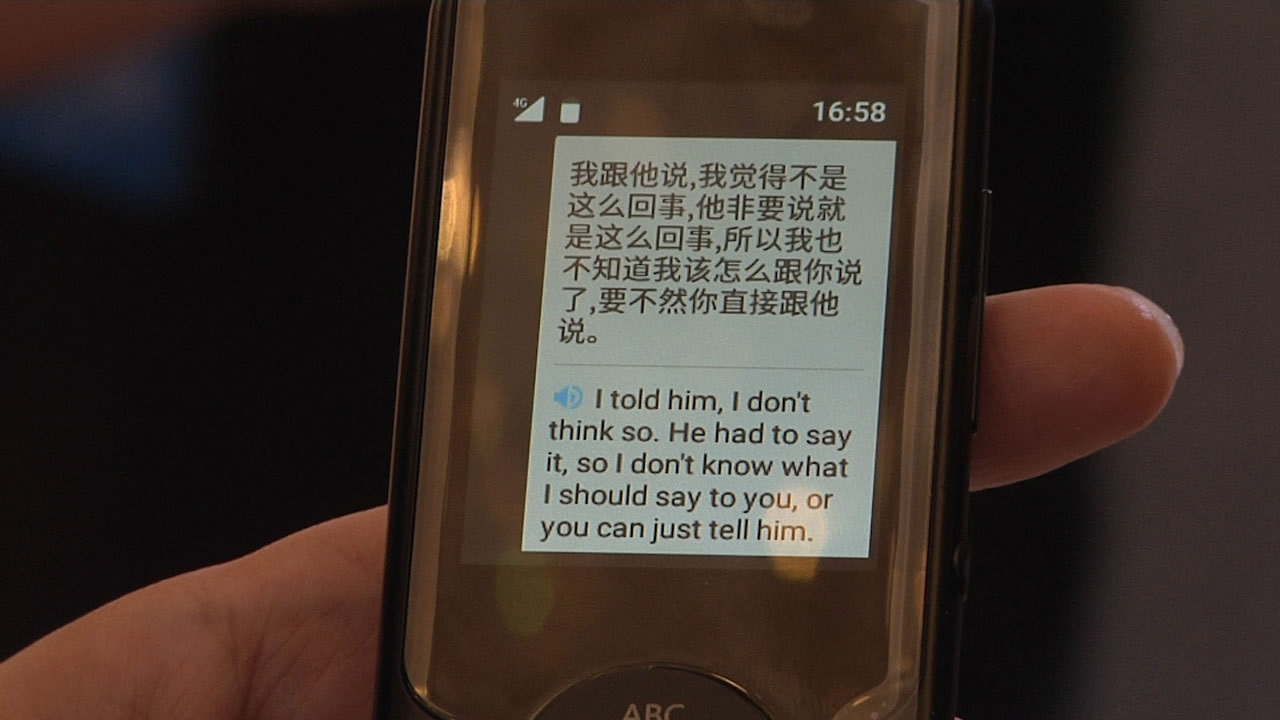
AI
19:01, 01-May-2018
Hands on: iFlyTek revamps its AI translator with touchscreen and more languages
By Gong Zhe
03:35

Chinese speech recognition giant iFlyTek released its second-generation handheld translator gadget last Friday, with the latest iteration including a touchscreen and the addition of 33 languages.
CGTN has covered the Hefei-based company's first-generation device many times, which sometimes confused users, as it had no screen, but simply a speaker and a light indicator to show it was working.
In the latest device, the company has fixed that shortcoming, and added a touchscreen to make the user experience easier.
"Now you can have a better interaction with the device. No need to worry about if it's still functioning," said the product manager Zhai Jibo.
Another upgrade is language options. It now supports 33 languages that can "cover more than 95 percent of your travel destinations," iFlyTek co-founder Hu Yu said during the press conference.
The new device can now recognize heavy Chinese accents and even Cantonese, which has an entirely different vocabulary than Mandarin Chinese.
We at CGTN are tired of tech companies bragging, so we designed a series of tests to see if the device stood up to the hype. The tests were designed based on previous errors made by other AIs from other Chinese companies.
So how does the device deal with stuttering, understanding a heavy Chinese accent, or decoding complex sentences? Watch it in the cover video (spoiler: it's a pass).
People from the company gave us some insight on how the device works, with a significant change being that the device has a phone SIM card slot, which means it can contact a cloud AI with 4G connection.
The AI, has been in development by iFlyTek for more than a decade and is one of the first neural networks designed for voice recognition. It can cancel out noise as well as guess at the context of sentences, making it stand out from its competitors.
If you are concerned with privacy, offline translation is also available.
iFlyTek said they designed the second-generation device with traveling in mind. Users can purchase data packages when they are outside of China, and share the data quota with smartphones and laptops nearby.
"We are yet to know the size of the market. But this device is a blunt demonstration of the power of our technology in voice recognition and real-time translation," Zhai told reporters.
In addition to the translator, iFlyTek has also empowered their AI transcript software with translating capabilities.
The program was used to transcribe and translate all speeches made during the press release. But a CGTN reporter found that the English translation sometimes appears so quick that people can barely see the text.
The device is already available for purchase on the Chinese mainland. So if a Chinese person points a phone-like gadget at you. Don't be scared. They may just want to chat.

SITEMAP
Copyright © 2018 CGTN. Beijing ICP prepared NO.16065310-3
Copyright © 2018 CGTN. Beijing ICP prepared NO.16065310-3